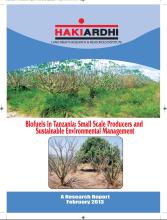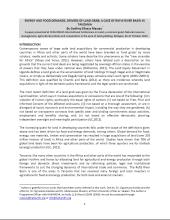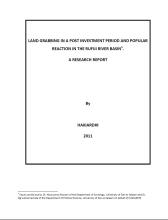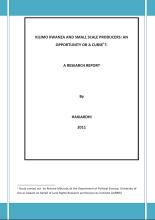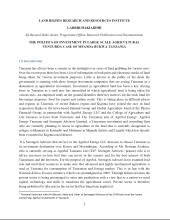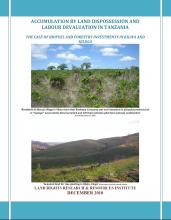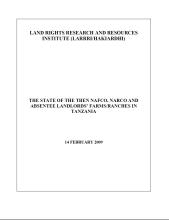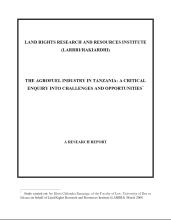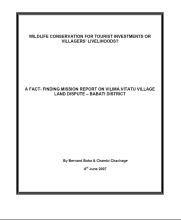Land Library
Bienvenue dans la bibliothèque du Land Portal. Explorez notre vaste collection de ressources en libre accès (plus de 74 000), comprenant des rapports, des articles scientifiques, des articles de recherche, des publications évaluées par des pairs, des documents juridiques, des vidéos et bien plus encore.
/ library resources
Showing items 1 through 9 of 10.The purpose of this study was to assess the bio-energy sector in Tanzania and to critically inquire the threats, benefits and opportunities to smallscale producers and sustainable environment management.
Contemporary waves of large scale land acquisitions for commercial production in developing countries in Africa and other parts of the world have been branded as ‘land grabs’ by many scholars, media and activists.
What has been the reaction of the rural producers and other land holders over these demands and actual land acquisitions? What does their reactions means in relation to ongoing land grabbing? While these questions are important this study was motivated by two major concerns.
This study sought to follow up the implementation of the Kilimo Kwanza initiative with the view to establish reliable facts on its significance to small-scale producers, mainly peasants and pastoralists.
Tanzania has always been a country in the spotlight over cases of land grabbing for various uses. Over the recent past there has been a lot of information in both print and electronic media of land being taken for various investment purposes.
New commercial pressures on land and its impact on small producers is one of the major issues being discussed in both national and international arenas.
The study sought to determine the state of farms that belonged to the then National Agricultural Corporation (NAFCO), ranches that belong to the National Ranching Company (NAFCO) and land belonging to absentee landlords.
Biofuel development in Tanzania places at stake 4 highly strategic national resources: land, water, forests and labour, and for generations to come.
A fact-finding mission team was formed as a result of consultative meetings on the land dispute between the village government and pastoralists in Vilima Vitatu village in Babati district.

